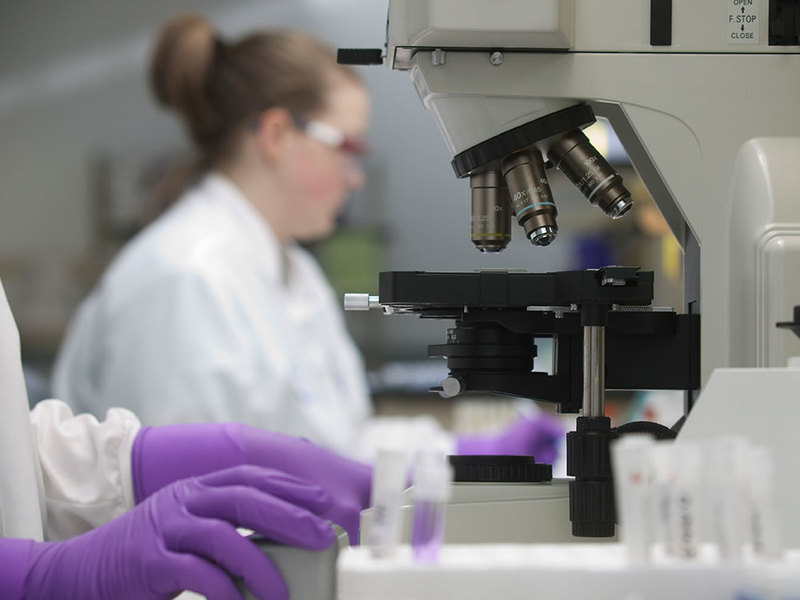Healthcare jobs that didn't exist 20 years ago
2020 has always been seen as the dawn of a new age; back in the 1980s, it was seen as the pinnacle of technical innovation. Whilst we may not yet be living in a decade with flying cars and people living on Mars, we are certainly living in a technically advantageous era packed full of change. To mark the incoming of a new decade, we take a look at how the healthcare profession has changed over the past 10-20 years.
As you can see, thanks to science and technology, we’re already living in the future, and it’s really exciting to see how healthcare jobs will continue to evolve.
Biomedical Scientist specialising in genomes
Although DNA was discovered in 1871 and the genomes field (as we know it today) became mainstream in the 1970s, it’s only really been in the last 20 years that we’ve really started to understand the importance of genomes. This is largely due to the Human Genome Project who have been continuing research into this fascinating field and publishing reports about the structure and function of human genes.
As biomedical science and technological changes continue to evolve, we’re sure we’ll see an increase in the number of biomedical science jobs available as it plays an important role in allowing us to cure diseases and establish new treatment methods.
Virtual Doctor
Whilst pressures are increasingly mounting on the NHS, changing capabilities mean that it’s now possible to diagnose and even treat illnesses through virtual technology. Whether it’s through enhanced chatbots, video conferencing or AI technologies, virtual doctors could have a real impact on older people and prevent risks of strokes, heart attacks and falls.
A recent survey in the United States of America found that thanks to virtual check-ups, “patients spent a third less time in hospital on average and that deaths from septic shock fell by 60pc”.
For our international workforce, virtual medical care is having a huge impact on countries such as Zambia. The Virtual Doctors are a charity that use smartphone technology to connect Zambian health workers with UK-based volunteer doctors to diagnose conditions and treat patients.
Head of Electronic Health Records
Although this is more of an administrative healthcare position than a medical profession, the digitisation of medical records has been a huge advantage for NHS staff across the country.
The government has long pushed for the NHS to be paperless by 2020. In recent years, infrastructure has been put in place to support cyber security and data protection as well as transforming digital primary care, social care and developing new NHS websites and apps.
The NHS Long Term Plan (which was announced in January 2019) explains the importance of digital transformation and as a result, has created a variety of job opportunities for those involved in the transition.
Ensuring that a patient’s files are accurately recorded online is a big responsibility; those responsible for electronic health records need to be able to work with both clinical and non-clinical staff to enhance patient care and secure positive patient outcomes.
We expect the impact of the NHS Long Term Plan to see an increase in the number of digital job roles available within the NHS.
App Developer
Whilst app developers are not healthcare professionals, they are a big part in the changing ways that we engage with healthcare professionals. It’s strange to think back to a time when we didn’t have the latest apps on our phones, but it goes without saying that they can transform the way to receive care and improve our health and wellbeing.
Whether you’re told by a doctor to use the popular NHS Couch to 5k app as a way of introducing exercise into your routine, or you’re using Patient Knows Best to have instant access to your medical records, we think that app developers should be recognised for their impact upon the NHS.
As we move into 2020, we’re excited to see what healthcare job roles will continue to emerge. Let us know what you think by getting in touch.
